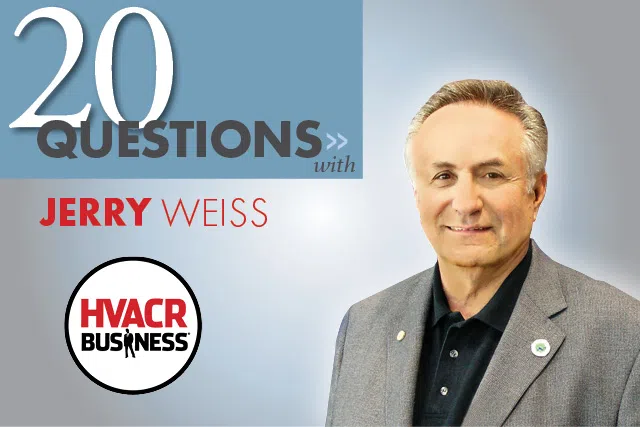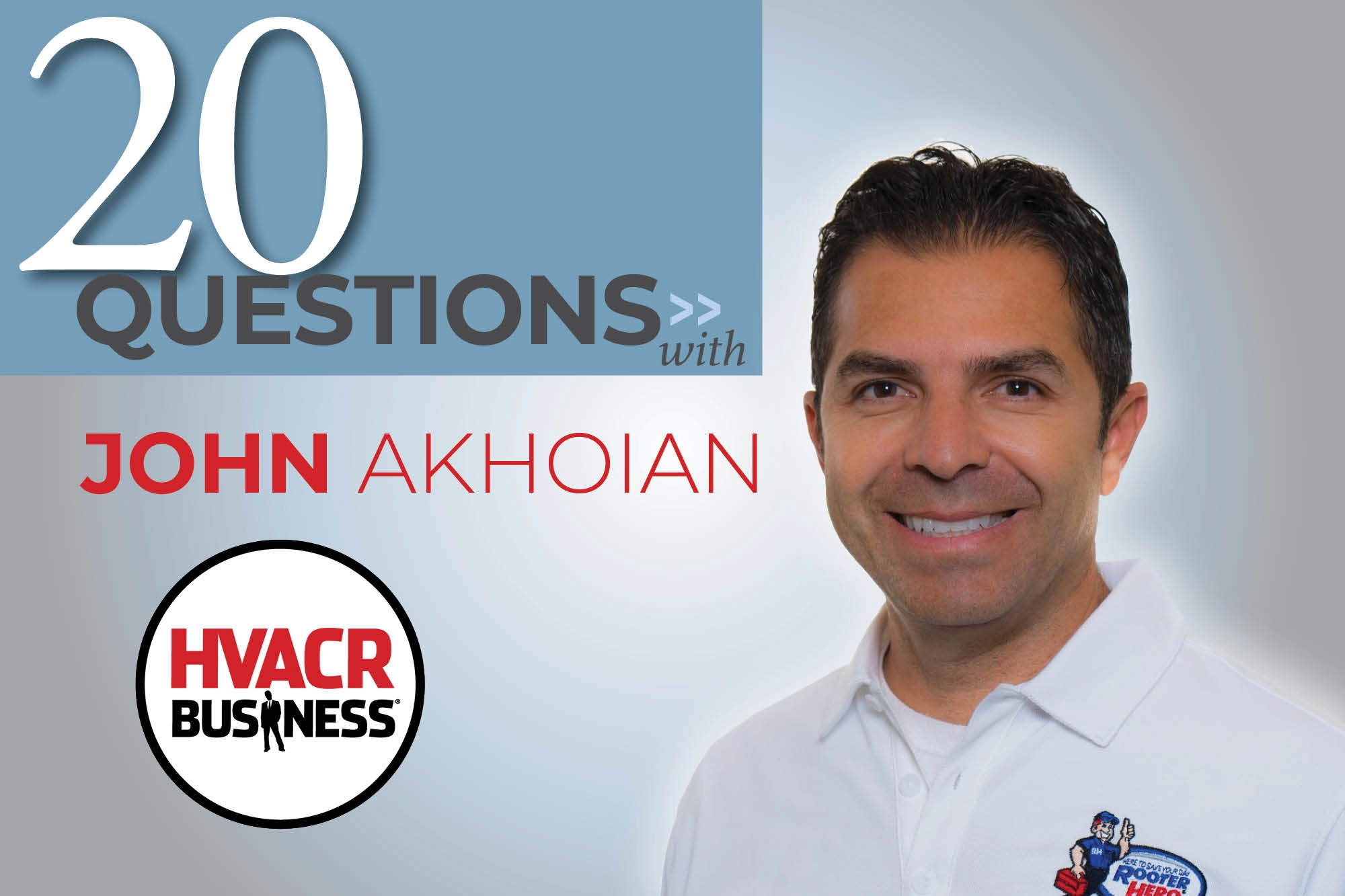Terry Tanker met with Jerry Weiss, the Executive Director of HVAC Excellence, the leading provider of certifications in the HVACR industry. Jerry is also the Chairman of the Green Mechanical Council. The two discussed the need for training, education and certification; as well as effective recruiting and horseback riding.
1. You’re a horseman. What is your most memorable riding experience?
While riding in the Rocky Mountains, we convinced our guide we were excellent riders. So, he had us galloping up very steep grades to a dead-end stop where there was a drop of about 2,000 feet. I swear our guide was Curly from the movie City Slickers. It was a lot of fun but very scary.
2. Do you still ride?
Unfortunately, a knee injury has prevented me from enjoying riding.
3. Didn’t you also spend some time at an Indian tribal college recently?
Last year we began a pilot program in cooperation with United Association and a subdivision of the Dept. of Interior Bureau of Indian Affairs. It was an 800-hour-long residential energy-auditing program delivered at the United Tribes Technical College in Bismark, N.D. This program is now being offered to colleges and is a natural add-on to HVAC programs.
4. Why did you start HVAC Excellence?
I observed that in many countries, the HVACR industry requires a solid education. However, a large percentage of individuals in the United States weren’t getting a formal education. They were learning the trade on the job without understanding the fundamentals. That concerned me, and there was a need to verify competency, identify deficiencies, and promote quality education.
5. How would you rate your success?
We haven’t met the challenge completely. But many more people entering this profession are doing so with a formal education than compared with 10 or 15 years ago — a lot more.
6. What other factors have made education and training more important in the HVACR industry?
Technological and business developments have. The day of the clever mechanic who could walk in and look at the problem, and solve it without a formal education is over.
7. What types of programs does HVAC Excellence offer?
We provide a clear and concise lifetime career path for the HVAC industry. This is accomplished through educator credentialing, technician certification, student outcome assessment, and programmatic accreditation for both secondary and post-secondary HVAC programs.
8. Why is accreditation of education programs in our industry so important?
Accreditation sets standards for the educational process, and assures employers that graduates possess the knowledge necessary to install and service modern systems. In addition, it allows both students and employers to identify quality programs.
9. What evidence do you have of this?
Often when schools apply for accreditation, it takes about 18 months for them to submit the self-study of how they meet the standards. Theoretically, they should be able to complete that in 30 to 60 days.
10. So why does it take them 18 months?
It took me a while to figure that out, but I realized that through the self-assessment process, they found that they didn’t meet these high standards, so they were upgrading their program in order to comply.
11. What do you provide for technician certification?
We provide certification programs at a variety of levels. At the post-secondary level, we have an Employment Ready certification. We also have technician certifications for a variety of skills. Our technician exams require two years of verifiable field experience prior to taking a test. We also provide a Master Specialist certification. It’s a hands-on exam that requires that the technician has passed both a written exam and has three years of field experience.
12. Should all technicians have some type of certification?
Yes, however I don’t think it should be mandatory. When something is mandated it invariably becomes exclusionary which, tends to stifle creativity and limit the potential for improvement.
13. What can contractors do to support education in our industry?
They can contact existing schools and offer to be a member of their advisory committees. These committees have a lot of influence on the practical outcomes of programs. Secondly, if you don’t offer continuous and specialized training to your employees — to start doing it.
14. What’s the best way for contractors to recruit?
Being on an educational advisory committee gives you access to the best and brightest students. For recruiting employees who are already in the field, determine if they’ve participated in ongoing training and what certifications they have.
15. What is your management philosophy?
We work as a team, and we check our egos at the door. We all work together to create the best products and programs that we can. When we do well, we all benefit.
16. What is the toughest challenge the industry has the next three to five years?
Seventy-eight million Baby Boomers are retiring. There are only 40 million Generation Xers nationwide to take their place. If we don’t get our share in this industry, labor shortages will cause significant challenges.
17. What’s your biggest concern regarding technician education right now?
Community colleges and technical colleges often hire new instructors with 10 or 15 years of field experience, and little or no formal HVAC education. It is difficult to teach the science of HVAC without the proper background.
18. Can you cite an example?
After we developed our energy audit program, more than 150 schools requested information on the program. Most wanted to know what portions they needed to add to their existing HVAC programs. In discussions with them, I was surprised to learn that a large percentage of instructors were not teaching, or did not know how to perform or teach heat load calculation.
19. What did you do in response?
We raised the standards for instructor qualifications within our Accreditation standards. We also created a new and very thorough instructor’s guide, slide presentation and student handouts on the subject, along with a certification exam to verify their competency. To me, that is among the most significant things we have done in the last year.
20. Can you tell me about your Train the Trainer Conference in March?
It’s unique, in that it is solely dedicated to HVAC educators and trainers. Last year’s 535 attendees experienced a boot-camp designed to improve their instructional skills in the latest technology and teaching techniques. This year’s conference is shaping up to be the best yet.






